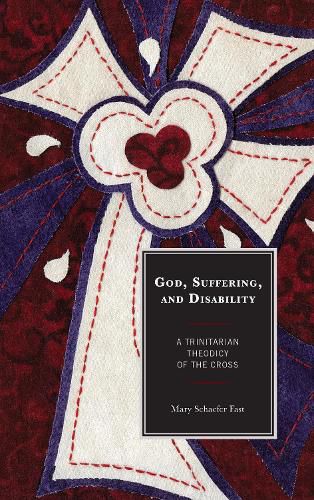Readings Newsletter
Become a Readings Member to make your shopping experience even easier.
Sign in or sign up for free!
You’re not far away from qualifying for FREE standard shipping within Australia
You’ve qualified for FREE standard shipping within Australia
The cart is loading…






God, Suffering, and Disability: A Trinitarian Theodicy of the Cross utilizes both Christological and pneumatological perspectives of Luther’s theology of the cross to address the complexities of suffering and disability. Through the lens of the cross, the God who suffers enables humans to call a thing what it is by recognizing the suffering that often accompanies disability. Rather than asking why the Triune God allows people to suffer, this theodicy of disability focuses on where the Father, Son, and Spirit are in that very human experience. As a new theodic construct, a Trinitarian theodicy of the cross responds to both the theological concerns of the church and the theoretical apprehensions of society. It encourages Christians to live as theologians of the cross, empowers the faith community by informing both its theology and praxis, and provides a theoretical response to secular society that will enrich the field of disability studies.
$9.00 standard shipping within Australia
FREE standard shipping within Australia for orders over $100.00
Express & International shipping calculated at checkout
Stock availability can be subject to change without notice. We recommend calling the shop or contacting our online team to check availability of low stock items. Please see our Shopping Online page for more details.
God, Suffering, and Disability: A Trinitarian Theodicy of the Cross utilizes both Christological and pneumatological perspectives of Luther’s theology of the cross to address the complexities of suffering and disability. Through the lens of the cross, the God who suffers enables humans to call a thing what it is by recognizing the suffering that often accompanies disability. Rather than asking why the Triune God allows people to suffer, this theodicy of disability focuses on where the Father, Son, and Spirit are in that very human experience. As a new theodic construct, a Trinitarian theodicy of the cross responds to both the theological concerns of the church and the theoretical apprehensions of society. It encourages Christians to live as theologians of the cross, empowers the faith community by informing both its theology and praxis, and provides a theoretical response to secular society that will enrich the field of disability studies.